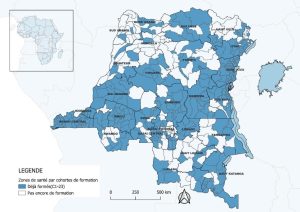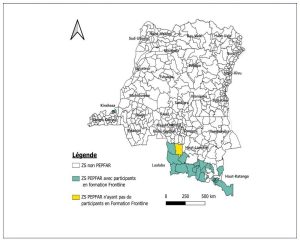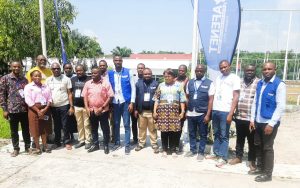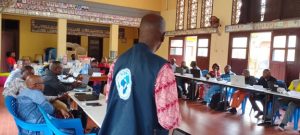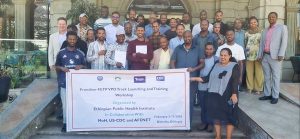Building Public Health capacity in the DRC: FETP Workshop 2 for Cohort 25
-
by
AFENET
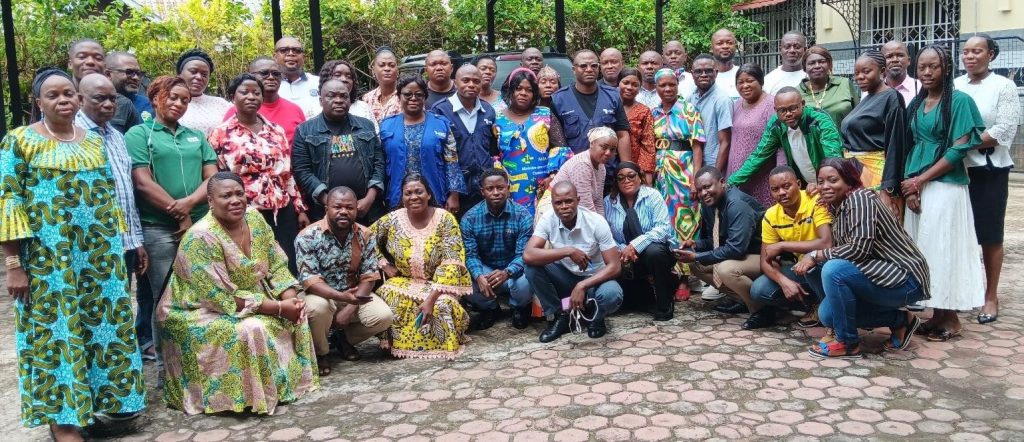
From November 26–30, 2024, Kinshasa hosted the second workshop for Cohort 25 of the Frontline Field Epidemiology Training Program (FETP), focusing on HIV surveillance. This initiative, supported by the Ministry of Public Health, Hygiene, and Prevention, the CDC, PEPFAR, and AFENET, aims to strengthen epidemiological capacity in the Democratic Republic of Congo (DRC). Participants, drawn from PEPFAR-supported health zones, represented diverse roles such as zone medical officers, biologists, and data managers. Their gender-balanced cohort, averaging nine years of experience, reflected the depth of expertise in the room.
The five-day workshop blended fieldwork presentations and thematic training, focusing on critical areas like HIV-related case investigations, public health problem analysis using tools like fishbone diagrams, and improving scientific presentation techniques. Participants shared findings from six months of HIV surveillance, conducting retrospective and prospective data analyses. Feedback sessions emphasized creating structured visuals and actionable recommendations to enhance the impact of their presentations.
Training was hands-on, combining discussions, practical exercises, and interactive sessions. Materials such as exercise books, facilitator guides, and context-specific presentations supported the learning process. Evaluation results highlighted participants’ progress, with knowledge scores rising from 56.2% in the pre-test to 63.79% in the post-test. Despite challenges, such as the temporary absence of mentorship due to illness, the workshop achieved its objectives through teamwork and adaptive solutions.
The workshop marked a significant milestone in Cohort 25’s training journey. By building competencies in HIV surveillance and outbreak response, this program is equipping health professionals with the tools to address public health challenges effectively. The skills gained during this workshop will contribute to the DRC’s broader efforts to strengthen its health system and safeguard communities from epidemic-prone diseases.
The figure below shows changes in the coverage of the SDAs in terms of FETPs trained and in training and those not yet covered by FETPs from 2016 to date.
